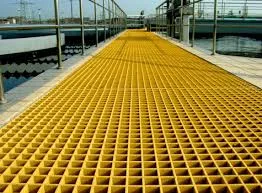
-
 Afrikaans
Afrikaans -
 Albanian
Albanian -
 Amharic
Amharic -
 Arabic
Arabic -
 Armenian
Armenian -
 Azerbaijani
Azerbaijani -
 Basque
Basque -
 Belarusian
Belarusian -
 Bengali
Bengali -
 Bosnian
Bosnian -
 Bulgarian
Bulgarian -
 Catalan
Catalan -
 Cebuano
Cebuano -
 China
China -
 China (Taiwan)
China (Taiwan) -
 Corsican
Corsican -
 Croatian
Croatian -
 Czech
Czech -
 Danish
Danish -
 Dutch
Dutch -
 English
English -
 Esperanto
Esperanto -
 Estonian
Estonian -
 Finnish
Finnish -
 French
French -
 Frisian
Frisian -
 Galician
Galician -
 Georgian
Georgian -
 German
German -
 Greek
Greek -
 Gujarati
Gujarati -
 Haitian Creole
Haitian Creole -
 hausa
hausa -
 hawaiian
hawaiian -
 Hebrew
Hebrew -
 Hindi
Hindi -
 Miao
Miao -
 Hungarian
Hungarian -
 Icelandic
Icelandic -
 igbo
igbo -
 Indonesian
Indonesian -
 irish
irish -
 Italian
Italian -
 Japanese
Japanese -
 Javanese
Javanese -
 Kannada
Kannada -
 kazakh
kazakh -
 Khmer
Khmer -
 Rwandese
Rwandese -
 Korean
Korean -
 Kurdish
Kurdish -
 Kyrgyz
Kyrgyz -
 Lao
Lao -
 Latin
Latin -
 Latvian
Latvian -
 Lithuanian
Lithuanian -
 Luxembourgish
Luxembourgish -
 Macedonian
Macedonian -
 Malgashi
Malgashi -
 Malay
Malay -
 Malayalam
Malayalam -
 Maltese
Maltese -
 Maori
Maori -
 Marathi
Marathi -
 Mongolian
Mongolian -
 Myanmar
Myanmar -
 Nepali
Nepali -
 Norwegian
Norwegian -
 Norwegian
Norwegian -
 Occitan
Occitan -
 Pashto
Pashto -
 Persian
Persian -
 Polish
Polish -
 Portuguese
Portuguese -
 Punjabi
Punjabi -
 Romanian
Romanian -
 Russian
Russian -
 Samoan
Samoan -
 Scottish Gaelic
Scottish Gaelic -
 Serbian
Serbian -
 Sesotho
Sesotho -
 Shona
Shona -
 Sindhi
Sindhi -
 Sinhala
Sinhala -
 Slovak
Slovak -
 Slovenian
Slovenian -
 Somali
Somali -
 Spanish
Spanish -
 Sundanese
Sundanese -
 Swahili
Swahili -
 Swedish
Swedish -
 Tagalog
Tagalog -
 Tajik
Tajik -
 Tamil
Tamil -
 Tatar
Tatar -
 Telugu
Telugu -
 Thai
Thai -
 Turkish
Turkish -
 Turkmen
Turkmen -
 Ukrainian
Ukrainian -
 Urdu
Urdu -
 Uighur
Uighur -
 Uzbek
Uzbek -
 Vietnamese
Vietnamese -
 Welsh
Welsh -
 Bantu
Bantu -
 Yiddish
Yiddish -
 Yoruba
Yoruba -
 Zulu
Zulu
High-Quality Fiberglass Fertilizer Tanks for Efficient Agriculture
Fiberglass Fertilizer Tanks A Sustainable Solution for Agriculture
In the modern agricultural landscape, the need for efficient, durable, and sustainable solutions has never been more pressing. Among the many innovations contributing to this trend, fiberglass fertilizer tanks have emerged as a popular choice for farmers and agricultural businesses alike. Offering a range of benefits, these tanks are transforming the way fertilizers are stored and utilized.
Fiberglass, a composite material made from plastic reinforced by glass fibers, possesses unique properties that make it ideal for creating fertilizer tanks. One of the most significant advantages of fiberglass is its resistance to corrosion. Unlike traditional materials such as steel or aluminum, fiberglass does not corrode when exposed to harsh chemicals, which are often present in fertilizers. This not only increases the lifespan of the tanks but also ensures that the integrity of the stored fertilizers is maintained, minimizing the risk of contamination.
Additionally, fiberglass fertilizer tanks are lightweight and easy to transport and install. This is particularly beneficial for farmers who may need to relocate their storage solutions or expand their operations. The reduced weight also leads to lower shipping costs, making fiberglass tanks an economically viable option for many agricultural businesses. Their versatility allows them to be used in various configurations, whether as stand-alone storage units or integrated into larger agricultural systems.
fiberglass fertilizer tanks

Another advantage of fiberglass tanks is their ability to maintain consistent temperatures. Unlike metal tanks, which can heat up quickly under the sun, fiberglass can offer better insulation. Maintaining optimal temperature conditions is crucial for the longevity and efficacy of fertilizers, many of which can degrade if exposed to extreme heat or cold. By using fiberglass tanks, farmers can ensure that their fertilizers remain stable and effective longer, ultimately leading to better crop yields.
Moreover, fiberglass tanks can be manufactured in various shapes and sizes to accommodate different needs. Whether a small farm requires a mini-tank for specific fertilizers or a large agricultural operation demands substantial storage capacities, fiberglass technology can meet these requirements effectively. Customization options allow farmers to select tanks that fit seamlessly within their existing frameworks, maximizing efficiency and convenience.
Sustainability is another vital aspect of fiberglass fertilizer tanks. As the agricultural industry increasingly focuses on environmentally friendly practices, using fiberglass contributes to this goal. Fiberglass is non-toxic and recyclable, which helps reduce the environmental impact associated with plastic waste. When these tanks reach the end of their operational life, they can be repurposed rather than contributing to landfill waste.
In conclusion, fiberglass fertilizer tanks represent a significant advancement in agricultural storage solutions. Their resistance to corrosion, lightweight nature, temperature insulation properties, customization flexibility, and environmental benefits make them an ideal choice for modern farmers. As the agricultural sector continues to evolve, innovations like fiberglass tanks will play a critical role in promoting sustainable practices while enhancing productivity. By adopting such technologies, farmers can ensure they are better equipped to meet the challenges of today’s agricultural demands and are well-prepared for the future.
Latest news
-
Exploring the Benefits of Top Hammer Drifter Rods for Enhanced Drilling PerformanceNewsJun.10,2025
-
High-Precision Fiberglass Winding Machine for GRP/FRP Pipe Production – Reliable & Efficient SolutionsNewsJun.10,2025
-
FRP Pipes & Fittings for Shipbuilding - Corrosion-Resistant & LightweightNewsJun.09,2025
-
Premium FRP Flooring Solutions Durable & Slip-ResistantNewsJun.09,2025
-
Premium Fiberglass Rectangular Tanks Durable & Lightweight SolutionNewsJun.09,2025
-
Tapered Drill String Design Guide Durable Performance & UsesNewsJun.09,2025









